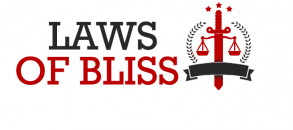
Sustaining an injury due to someone else’s negligence turns your life upside down. Not only are you left to handle mounting medical bills and lost income, but seeking fair compensation can feel like an uphill battle against insurance companies looking out for their bottom line. Having an experienced personal injury lawyer to advocate for you can make all the difference. If you’ve never worked with an attorney before, you may be wondering what exactly to expect when hiring a personal injury lawyer. Read on as we outline the typical process and what you anticipate every step of the way.
Initial consultation
This introductory meeting provides the chance to give an overview of your case and ask the lawyer key questions to determine if they are the right fit. In most cases, the lawyer will also assess the strength of your claim during the initial consult. Come prepared to provide important details like how the injury occurred, the extent of your filing for personal injury damages, and what you hope to recover. Initial consults often last 30 minutes to an hour. Take notes and don’t feel pressured into hiring the first lawyer you meet. Compare a few before deciding.
Signing a contingency fee agreement
If after the initial consultation, you decide to move forward, the next step is signing a contingency fee agreement. This type of arrangement means you don’t pay any upfront legal fees. The attorney receives an agreed-upon percentage of your final settlement or court award. Contingency fees are typically 30-40% if settled pre-trial. Ask what expenses you may be responsible for, like court filing fees or hiring experts. Read the agreement thoroughly before signing.
Gathering evidence
Once hired, your Dallas Personal Injury Lawyer will start gathering evidence to prove liability and support your damages claim. It includes obtaining police reports, site inspection photos, videos, medical records, witness statements, expert opinions, and other relevant documentation. Your participation is crucial during this evidence-collection phase. Be prepared to give your attorney the names of witnesses, doctors who treated you, employers who verified lost income, and any other pertinent information. If a fair settlement can’t be reached through negotiations with insurance companies, your attorney will file a personal injury lawsuit. This formally starts the litigation process. Your lawyer will draft the complaint alleging negligence, file it with the court, and arrange to have it served on the defendant. The defendant then has a limited time to respond before the case proceeds. Lawsuits should always be a last resort but are sometimes necessary to recover maximum compensation.
Settlement negotiations
Most personal injury claims are settled out of court through negotiations between the attorneys. Your lawyer will leverage evidence and legal arguments to secure the best possible offer. It takes back-and-forth discussions and sometimes a mediator to reach an agreement. Be prepared for this settlement process to take time. Your attorney will counsel you on whether accepting an offer is wise or rejecting it to pursue a trial is the better choice based on factors in your case. The jury then decides if you have sufficiently proved liability and damages. Understand that trials are unpredictable and last days or even weeks depending on the complexity of your case.




